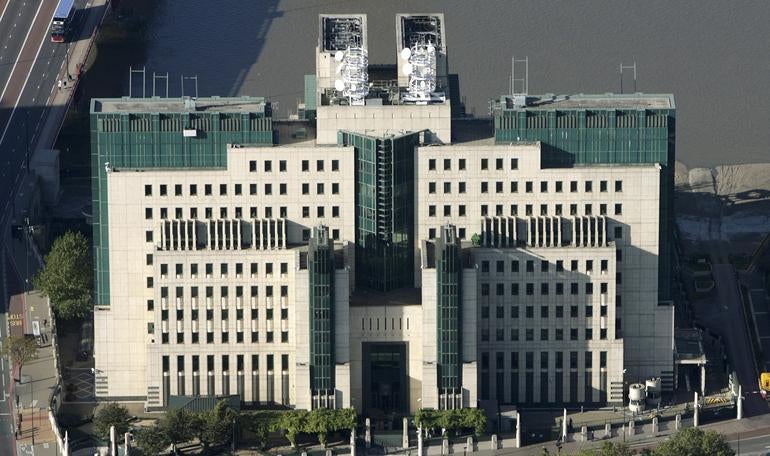
The former head of MI6, Sir Richard Dearlove, has said that the relationship of trust between journalists and the intelligence and security services was compromised after the invasion of Iraq in 2003.
In a rare public appearence last night, Dearlove spoke of the importance of a constant dialogue between secret service chiefs and journalists and said that his experience with the media was largely positive.
Despite this, he said that before stepping down from his post in 2004, some reports had jeopardised public safety.
‘There have been occasions when the press have been pretty careless about the way certain things been reported…This is something much more profound than a titillating interest in spying,’he said.
‘The press in majority know and understand the relationship and never write a story without agreement. However, there were a few notable exceptions. In general my personal experience has been extremely positive – I am always very surprised when the ‘D notice’ system of voluntary contract is [broken].”
Speaking at an event at the London School of Economics organised by the journalism think-tank Polis, Dearlove said that in his time at MI6, he had been able to live a private life and only one photo, of him aged 17, was ever published.
But since the invasion on Iraq in 2003, and the development of Britain’s role in counter-terrorism, the relationship between the press and the secret services had ‘suffered greatly”, he said.
He said that in the build-up to war, in which the government controversially used intelligence reports on Saddam Hussein’s military capabilities to make the case for war, trust between the two sides was compromised, but the ‘fundamental causes were not really the in the direct control of either party”.
‘In the case of Iraq the intelligence was expected to carry too great a weight on policy. We know there were other factors making the case [for war] and it was feared that those other factors would not [be believed] by opponents of the war
Though he admitted it was ‘important that the media is well-informed in writing about issues of public concern’he stressed they must do so ‘without compromising [the services’] secrets or staff”. The Secret Intelligence Services and journalists are ‘not enemies’he said, but their interests are ‘not the same”.
On their reporting of terrorism, Dearlove had more praise for journalists.
‘The media have an important role in articulating the threat of terrorism…I think this is an area where the press can be trusted to behave,’he said.
Email pged@pressgazette.co.uk to point out mistakes, provide story tips or send in a letter for publication on our "Letters Page" blog
